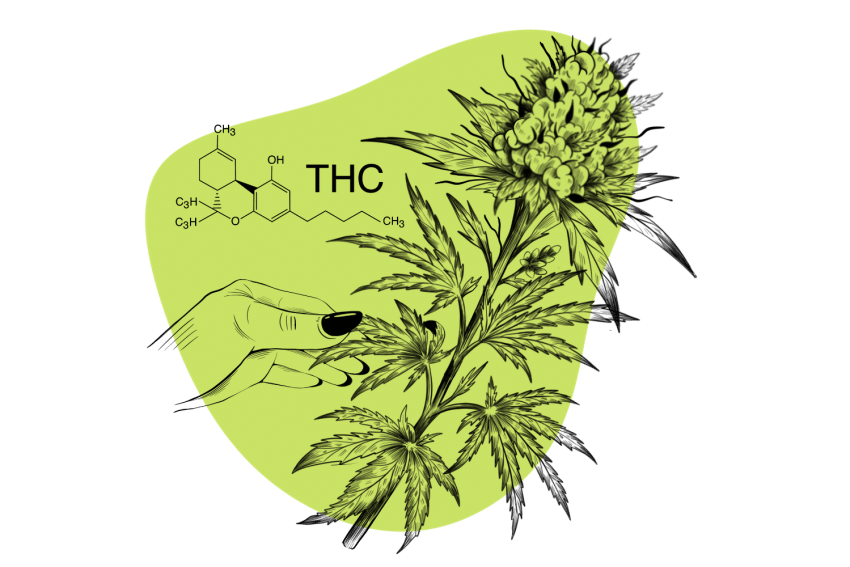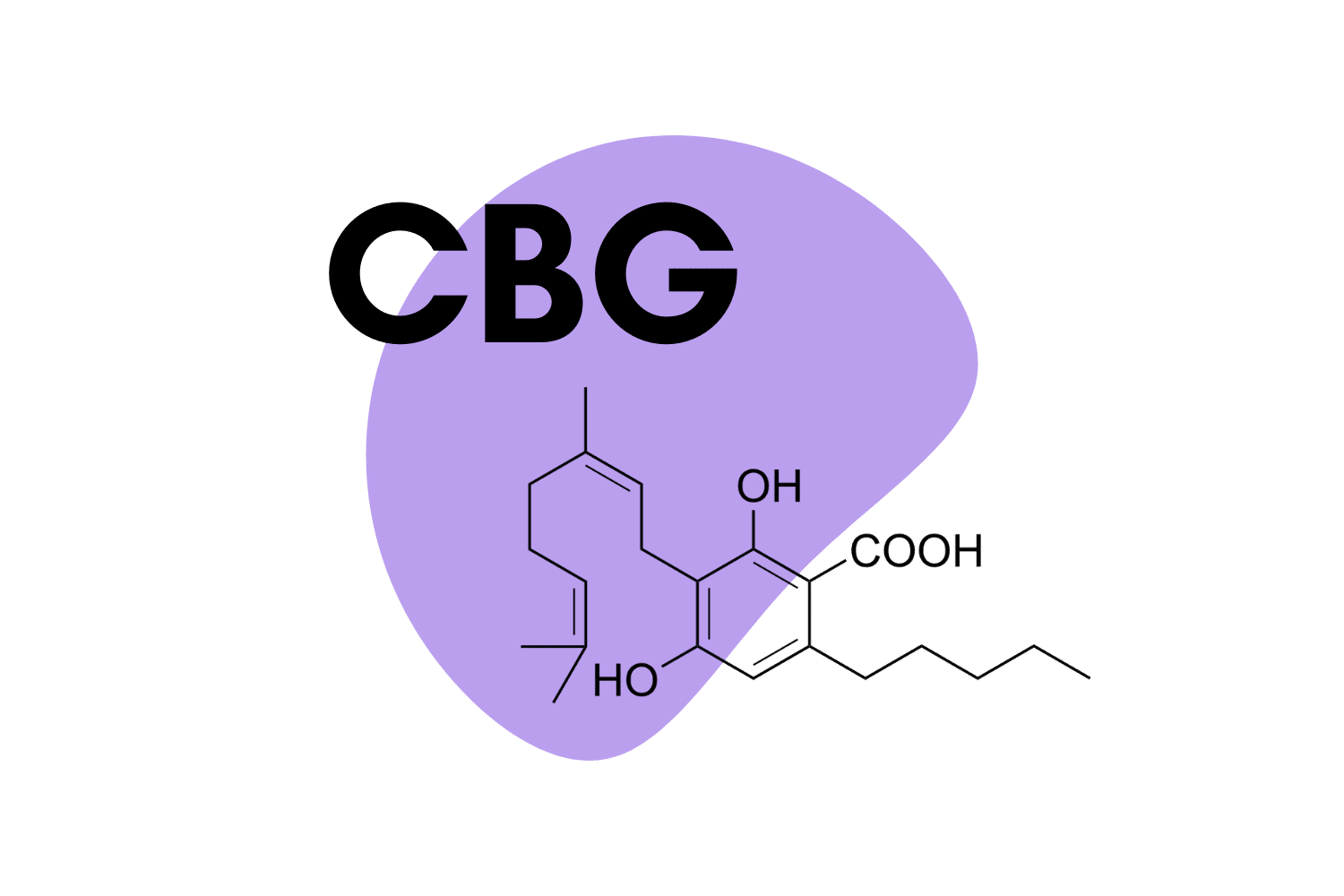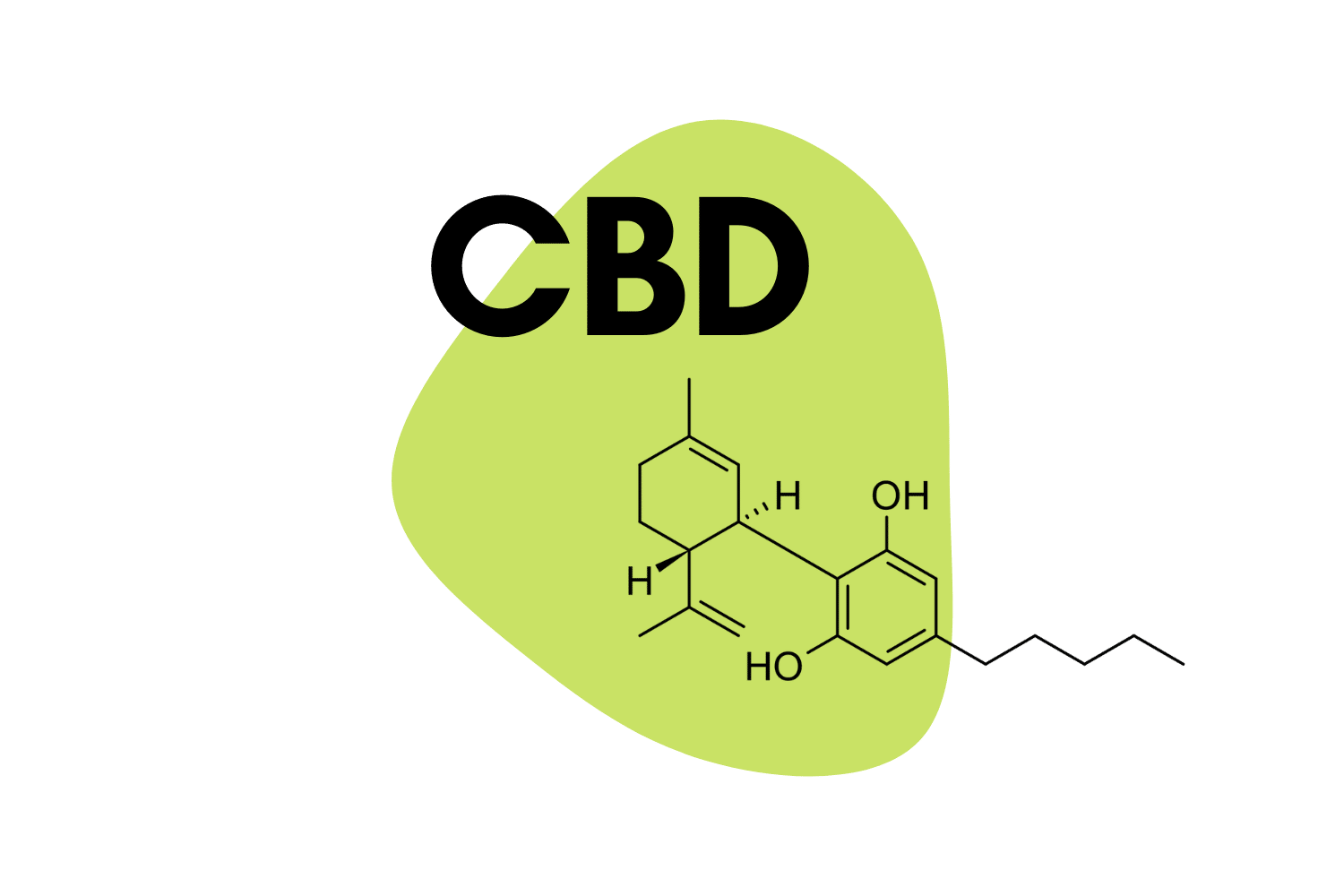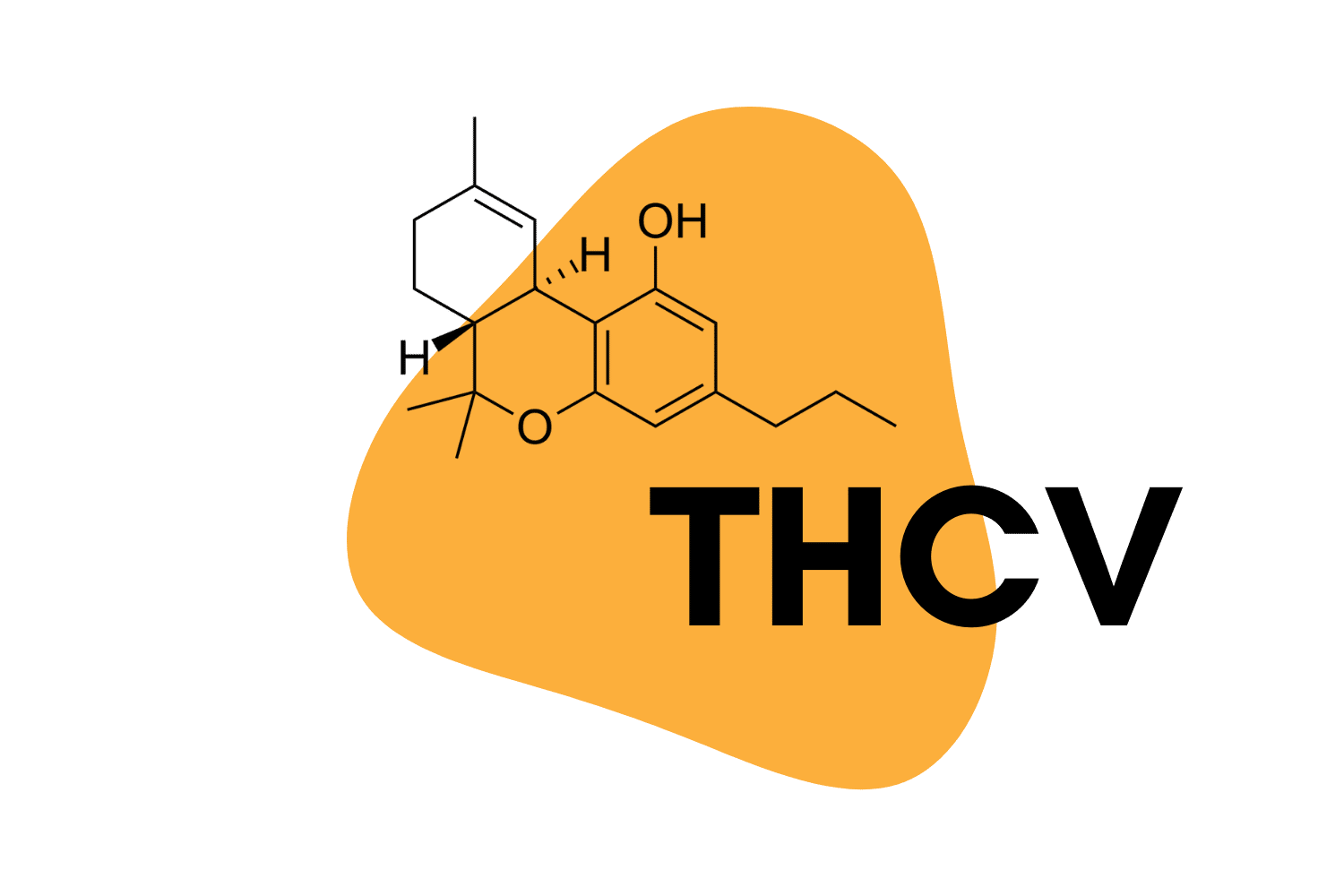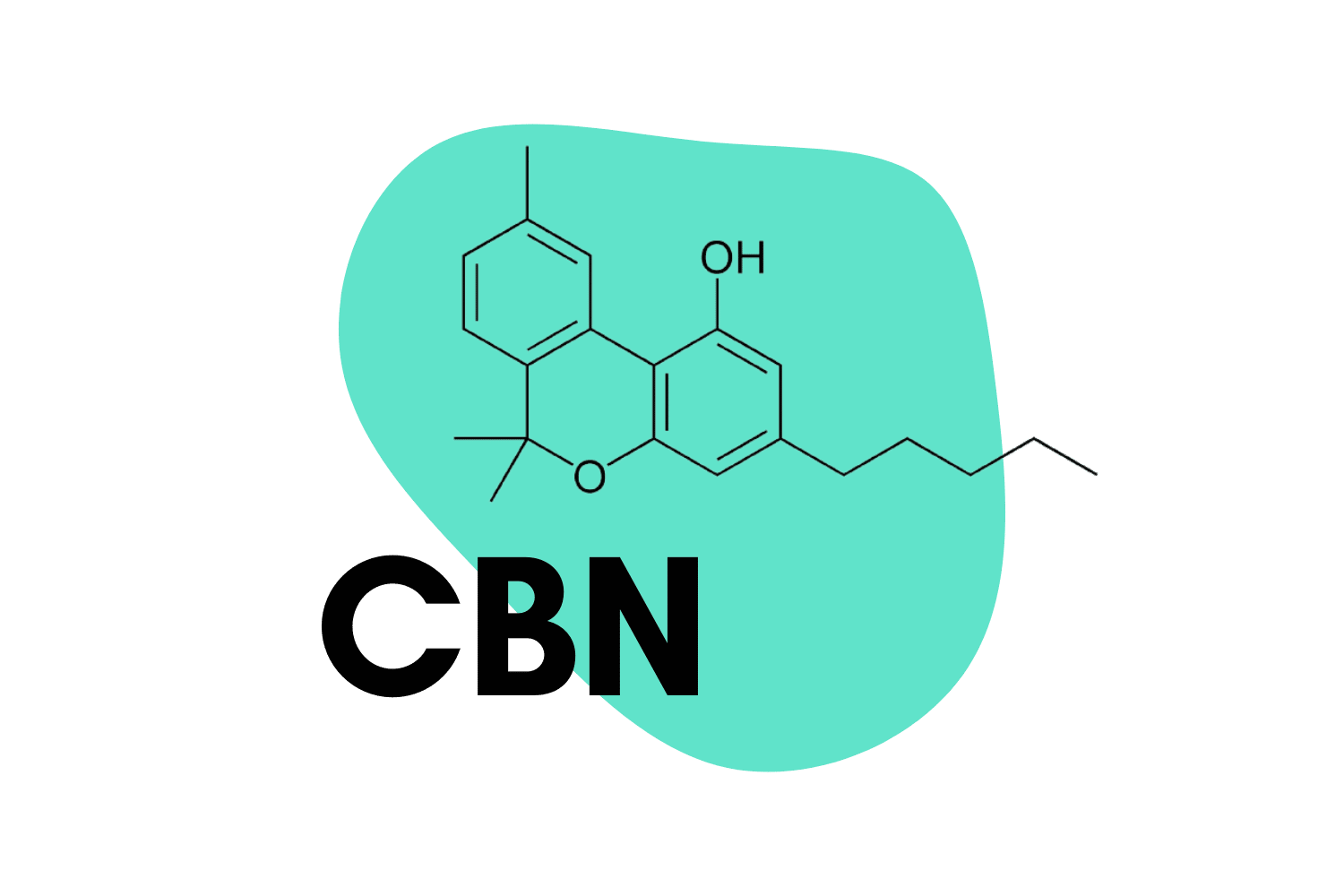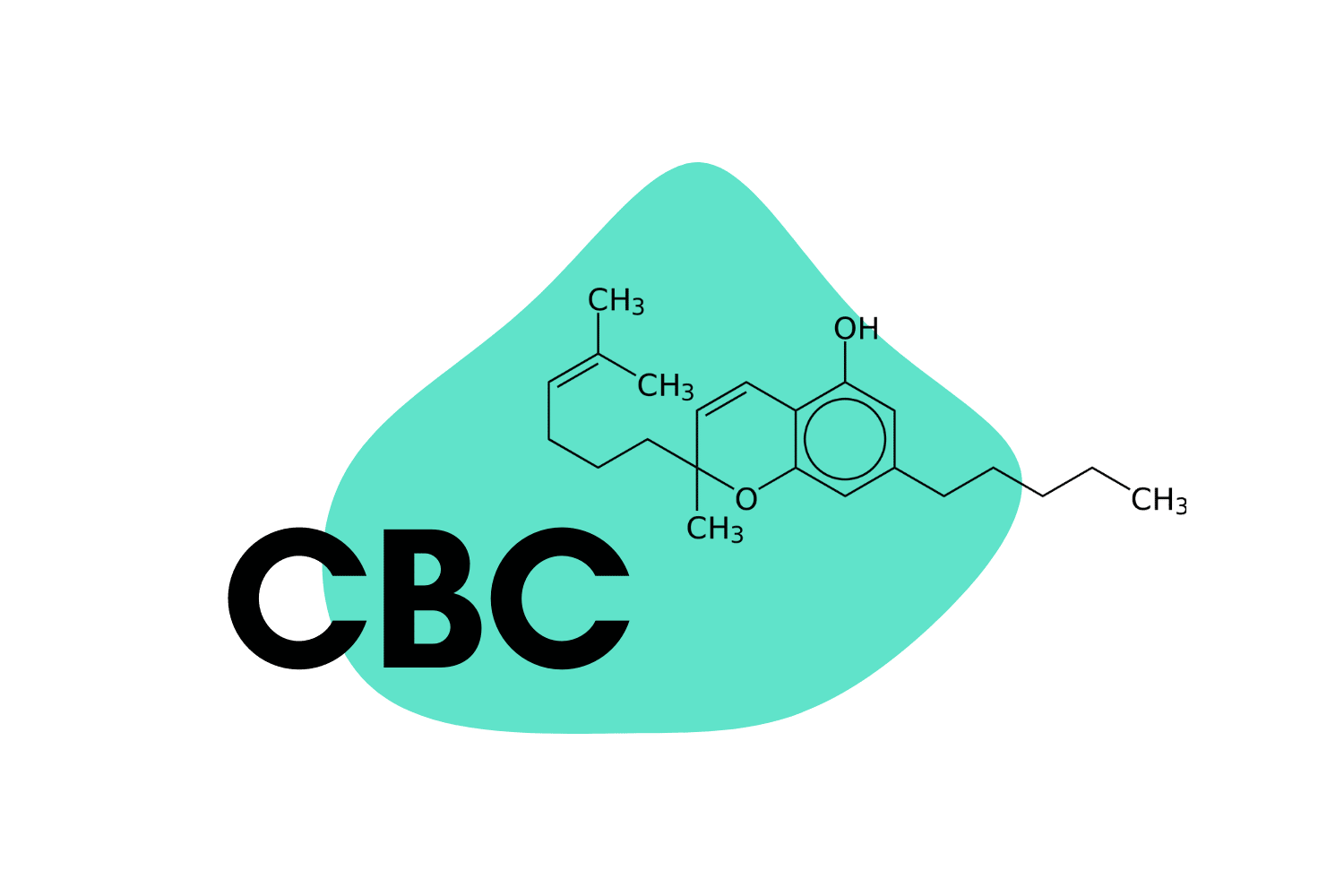Cannabis & ADHD: Therapeutic Possibility or Developmental Pitfall?
The notion of using weed for ADHD is on the rise. Is it possible that once vilified substance can answer the problems that it was once thought to create? Let’s find out.

ADHD affects up to 2.8% of the global population [1].
Conventional pharmacology has failed to deliver safe and effective treatments for this condition.
It’s no wonder people are turning to natural remedies for ADHD. Some people are turning to marijuana — claiming it helps them relax and remain focused.
This view is controversial, however, because many experts in the past claimed the use of marijuana actually made ADHD symptoms worse.
So what’s the truth? Does cannabis help or harm an ADHD diagnosis?
Why Are People Turning to Weed for ADHD?
The conventional treatment for ADHD is stimulant medications like amphetamine/dexamphetamine (Adderall), methylphenidate (Ritalin), and lisdexfetamine (Vyvanse).
These medications certainly work, but they also carry a long list of side effects — especially when used consistently over long periods of time.
It’s reasonable for people who struggle with ADHD to want something gentler than these powerful psychostimulants.
A logical option is marijuana — which is known for its relaxation qualities and for its ability to shift the way our attention works.
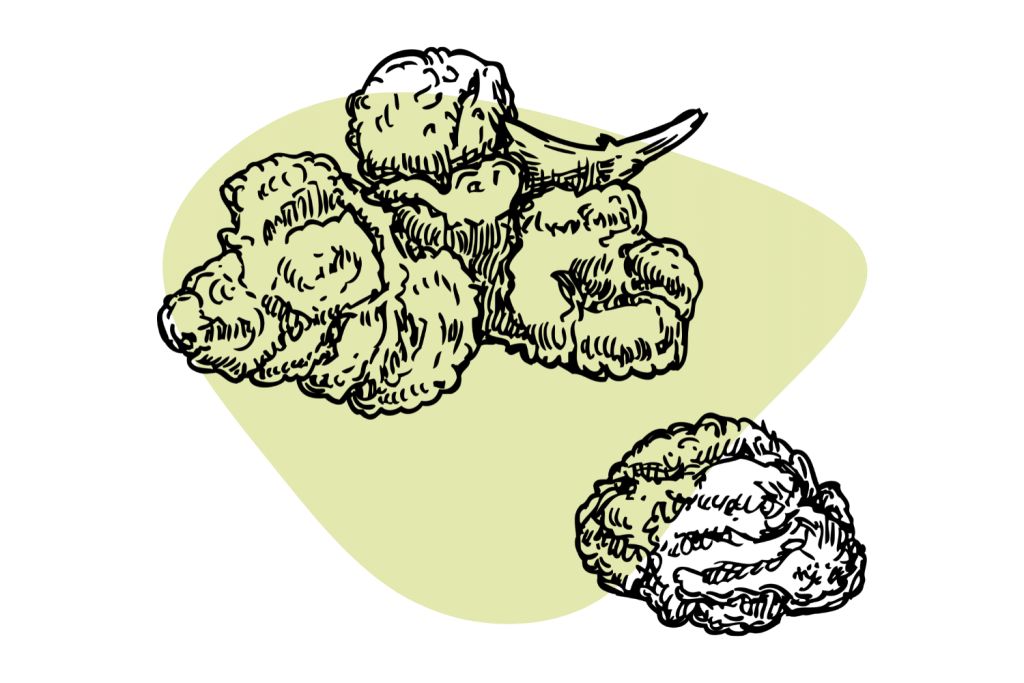
However, while some people find they’re more focused after using weed — most people report the exact opposite.
Where cannabis truly shines is in its ability to reduce stress and make people feel more at ease. While this may not be enough to combat the negative impacts ADHD has on one’s ability to focus, it may offer direct benefits to the more fidgety or energetic components of this condition.
A few studies have been done to explore the effects of cannabis on ADHD [2,3].
According to two of these studies, here are the most common reasons ADHD users they surveyed reach for marijuana to help them cope:
- Marijuana helps me focus
- Marijuana reduces feelings of stress and anxiety
- Marijuana helps me sleep better
- Marijuana offers an overall improvement in my mental health
The main concern regarding conventional ADHD treatments revolves around their side effects if you use them in the long run.
Commonly reported adverse reactions to stimulant drugs include:
- Increased blood pressure
- Muscle tremors
- Irregular heartbeat
- Irritation & antisocial behavior
- Weight loss
- Headaches
- Insomnia & other sleeping problems
- Heightened risk of epilepsy
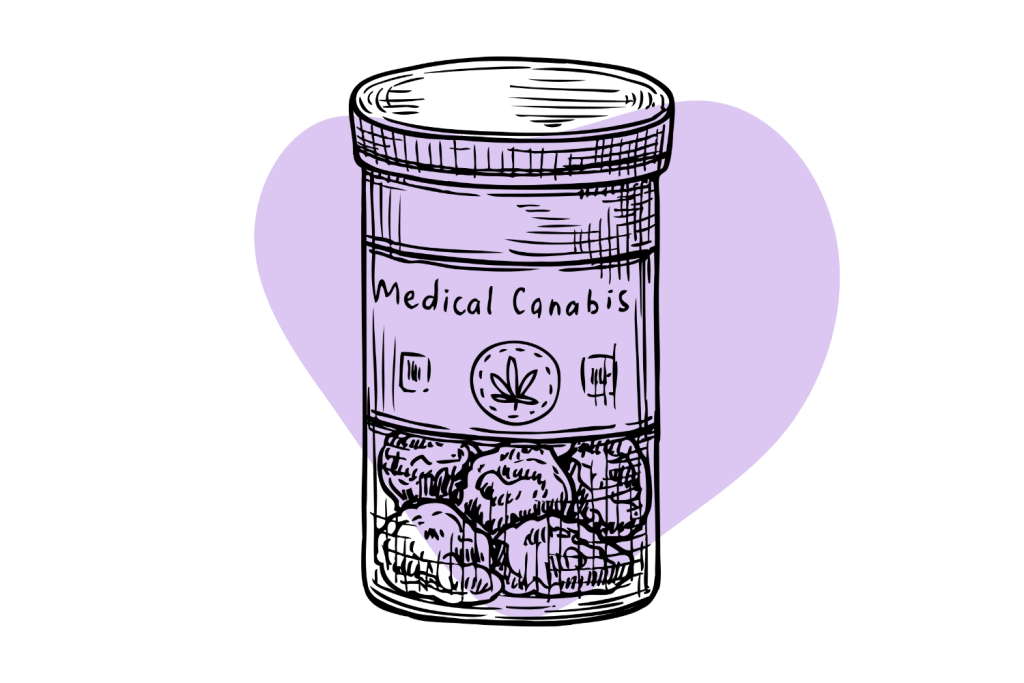
How Does Weed Work for ADHD?
According to some researchers investigating the impact of weed on ADHD, the condition may stem from endocannabinoid deficiencies.
When your body can’t produce enough endocannabinoids to maintain homeostasis in the body, you may experience dysfunctions in the other systems, including the nervous system.
These dysfunctions lead to low levels of dopamine and norepinephrine — the two neurotransmitters responsible for focus, mood, and arousal.
Unlike pharmacological drugs, cannabis doesn’t directly impact your dopamine and norepinephrine receptors [4]. This results in a much milder stimulation from cannabis compared to psychostimulant drugs like Adderall or Vyvanse.
If the theory about a dysfunctional endocannabinoid system (ECS) as the trigger for ADHD is true, weed might be used to address the root cause of attention disorder in affected individuals.
Your doctor should also recommend certain lifestyle and diet modifications to modulate the ECS from within so that it no longer needs support from cannabis.
Here’s how THC and CBD, the two major cannabinoids in weed, work for ADHD.
THC & ADHD
The molecular structure of tetrahydrocannabinol (THC) resembles anandamide — one of the major endocannabinoids produced by the ECS [6].
By mimicking anandamide, THC is able to coax the ECS to regulate dopamine levels. In plain English, THC works (at least in part) by supporting the master regulatory network that governs your attention, impulsivity, and motor activity — instead of synthetically altering dopamine and norepinephrine receptors.
We owe this discovery to Dr. David Bearman, who also believes this unique relationship between THC and the ECS explains why using weed for ADHD doesn’t induce serious side effects [5].
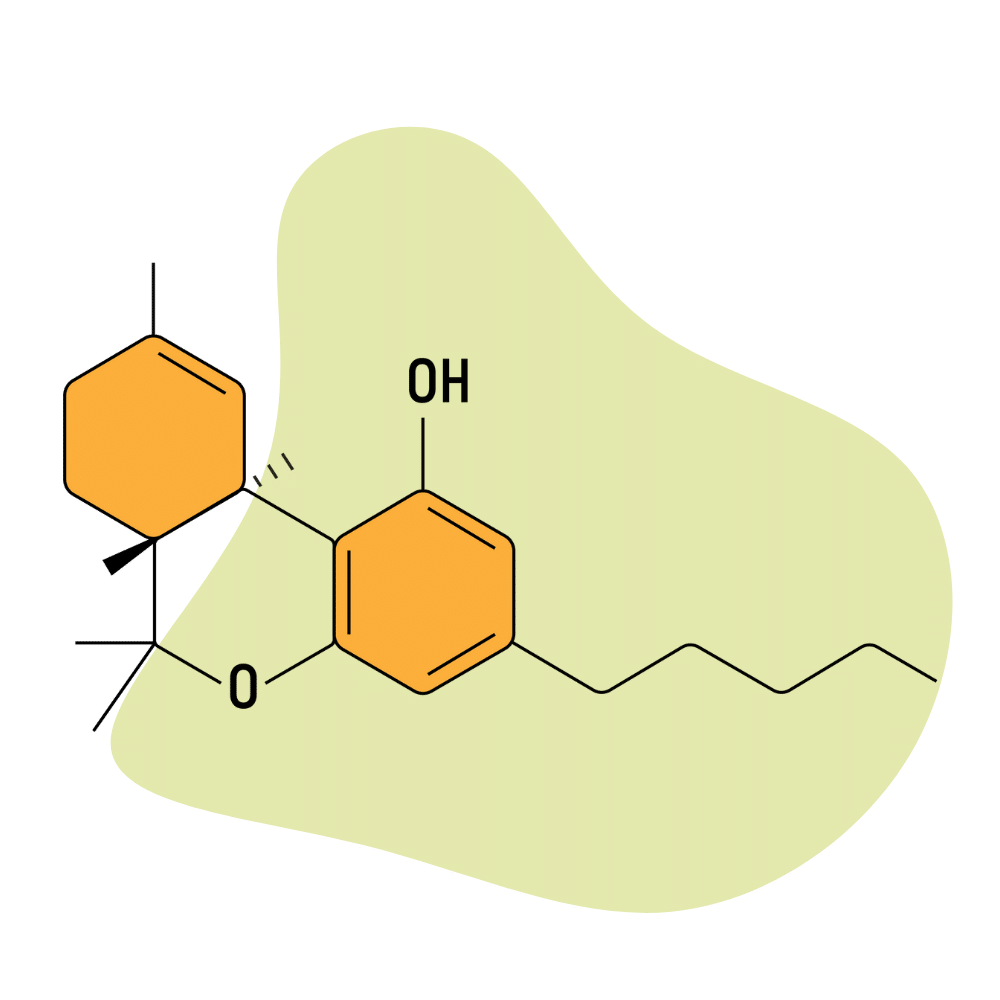
CBD & ADHD
Cannabidiol (CBD) may also have a positive impact on ADHD, although it uses different mechanisms than THC.
CBD doesn’t activate any cannabinoid receptors in the brain. Instead, it modulates the activity of the ECS to help you put it in the right way to regain homeostasis.
Here’s how it works.
CBD binds to the CB1 and CB2 receptors and makes them more sensitive to anandamide. It also blocks some of the enzymes tasked with breaking anandamide down [7].
When there’s more anandamide in your system, your brain can use dopamine more efficiently. However, this doesn’t happen through the direct activation of CB1 receptors — rather through gentle modulation that balances the ECS overall.
CBD has also been shown to increase GABA levels in the brain. GABA is an inhibitory neurotransmitter that works like a hand brake for the nervous system — slowing it down when it becomes overactive [9]. Low GABA levels are associated with increased anxiety and depression and impaired focus [10].

How Terpenes Enhance the Effects of Weed for ADHD
Cannabinoids like THC and CBD are the engines for the effects of weed. But how your strain will work for ADHD depends largely on its terpene profile.
Here are a few terpenes that may be involved in the anti-ADHD qualities of marijuana [11]:
- Limonene — this citrusy terpene helps reduce stress, works as an antioxidant and anti-inflammatory, and improves the absorption of cannabinoids.
- Terpinolene — this terpene gives weed a herbal, piney aroma with hints of fruits; it also impacts the expression of the AKT1 gene, which has been linked to ADHD.
- Pinene — your weed is pinene-dominant when it smells like pine trees; such strains may improve focus and mitigate the cognitive side effects of THC.
- Linalool — this terpene is prevalent in lavender but also in certain weed strains. It’s known for its remarkably relaxing and calming properties that may help you with ADHD-induced insomnia.
- Caryophyllene — this unique cannabinoid-like terpene enhances the activity of CB2 receptors while toning down psychoactive stimulation from THC and enhancing the therapeutic properties of CBD.
Studies on Weed & ADHD
While the science on weed and ADHD is still evolving, there’s a good amount of evidence supporting cannabinoid-based treatments.
In a 2008 German study, the authors concluded that marijuana’s effects on ADHD were different from stereotypical ones. Weed helped the patients unwind, and improved their reaction time, focus, and alertness [12].
A 2016 analysis of 286 forum threads found that 25% of the threads were related to the positive effects of weed on ADHD. Only 8% of respondents experienced negative effects; 5% said weed gave them both positive and negative effects, and 2% felt nothing from their treatment [13].
A more recent study from 2020 on 112 adult patients with ADHD who used medical marijuana suggests that weed can be a substitute for conventional ADHD medication [14].
Other scientists followed through in 2021. The authors of the study published in The Journal of Attention Disorders state that cannabis treatments in young adults with ADHD have helped reduce most of the side effects of stimulants [15].
Last but not least, there are 3 case studies from 2022 that concluded marijuana can improve focus, productivity, and efficacy at work. All three patients used weed in conjunction with other medications, such as stimulants, antidepressants, and mood stabilizers [16].
German researchers conducted a trial that analyzed how adults perceive the efficacy of using weed for ADHD. They collected data from 30 adults with ADHD who used marijuana prescribed by their doctor [19].
The research team assessed three parameters:
- The efficacy of previous treatments
- The development of ADHD
- The benefits of medical marijuana on the condition
Each patient had used conventional pharmacology before trying medical marijuana — which they discontinued due to serious side effects.
A detailed analysis of the patient’s records provided the following results:
- 47% of patients demonstrated significant improvements in focus and reductions in impulsivity and motor hyperactivity.
- 73% experienced a significant reduction in their symptoms. The participants were again able to work, and their social lives also improved.
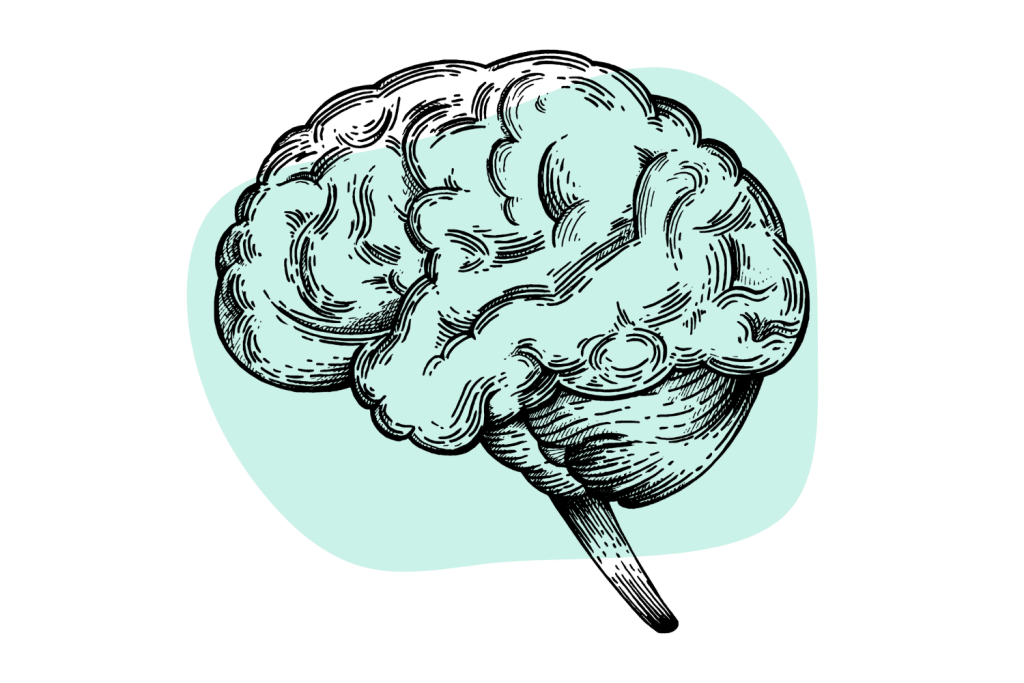
Can You Combine Weed with ADHD Medications?
There aren’t many studies on the interactions between weed and other medications for ADHD. One small 2015 study found that cannabis combined with methylphenidate produced better results than each medication alone [17].
The interaction between cannabis and methylphenidate turned out to be neutral.
If you want to avoid interactions between weed and standard ADHD treatments, consult your doctor for professional advice. A qualified physician will be able to accurately space out the dosages and timing for both substances.
What Are the Limitations When It Comes to Using Weed for ADHD?
Not all studies and reviews are optimistic about treating ADHD with weed. In a 2019 meta-analysis, the authors concluded the evidence supporting cannabis as a treatment for ADHD is insufficient [18].
However, that doesn’t mean weed doesn’t work for ADHD. The above statement reflects the current state of scientific knowledge.
Research on the medical benefits of cannabis has been withheld for decades due to its Schedule I status in the Controlled Substances Act.
So in another five years, a similar review of studies may come to completely different conclusions.
Especially considering the mechanisms governing the benefit of weed for ADHD.
It’s also very likely that weed helps some people with ADHD, does nothing for others, and may even make it worse for some. Everybody is different. Just because it works well for someone else doesn’t mean it will work for you — and vice-versa.
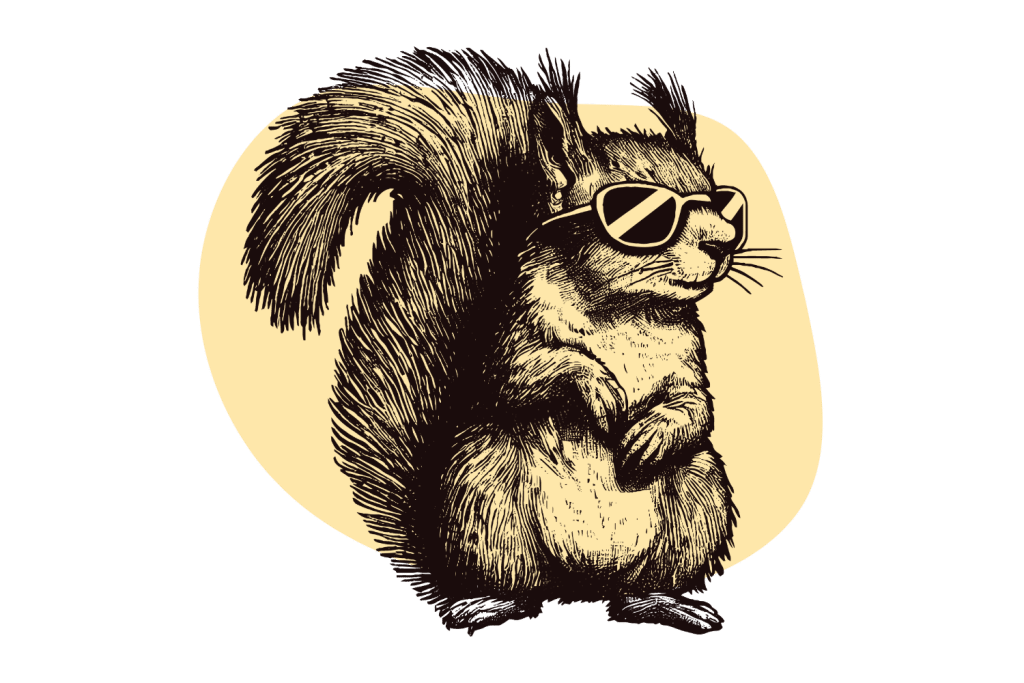
Weed Dosage for ADHD: How Much Is Enough?
As with all medications, using weed for ADHD requires the right dosage. However, natural medicines are particularly tricky to dose because they contain dozens and sometimes hundreds of active compounds that can work differently between individuals.
Finding the right dosage for ADHD depends on the following:
- THC and CBD content (and the ratios between them)
- The type of cannabis strain you’re using
- The consumption method you’re using
- Differences in the endocannabinoid system from one person to the next
What Are the Side Effects of Cannabis?
As with any medication, weed may cause adverse reactions in certain individuals, especially in high doses.
The acute side effects of using too much weed for ADHD include:
- Anxiety
- Confusion
- Disorientation
- Drop in blood sugar levels
- Dry mouth
- Increased heart rate
- Paranoia
- Red Eyes
- Sweating
- Short-term memory impairment
Who Shouldn’t Use Weed for ADHD?
Pregnancy and breastfeeding are the absolute red flag for using weed if you have ADHD. Studies on marijuana and pregnant women are unethical, and there’s too much contradictory evidence out there to recommend weed as a treatment.
You can deal with oversensitivity to THC by simply microdosing weed for ADHD or using a high-CBD strain. Alternatively, you can supplement CBD oil to offset the cognitive side effects of cannabis.
Schizophrenia is arguably the second most controversial contraindication. Although there’s no high-quality evidence to support the causal effect of marijuana in developing schizophrenia, many experts still refute this idea due to previous studies and their conclusions based on spurious correlations.
Finally, using weed for ADHD if you’re behaviorally addicted is anything but reasonable because you’ve been taught wrong patterns, and without proper guidance — and reaching the root cause of addiction — you won’t be able to figure out how to use it properly.
To summarize, you shouldn’t use weed for ADHD if you’re:
- Diagnosed with schizophrenia
- Oversensitive to THC
- Pregnant or breastfeeding
- Prone to behavioral addictions
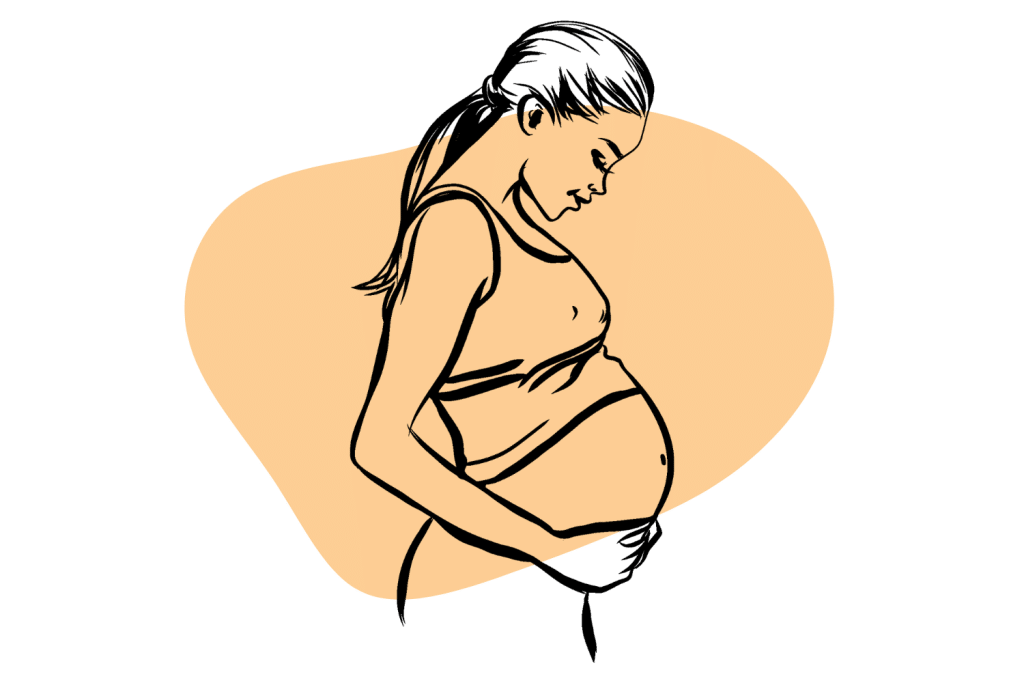
Final Thoughts: Can You Treat ADHD with Weed?
Weed may help you reduce the symptoms of ADHD and improve your overall quality of life — but it might also make them worse. Everybody is different, so the only way to know for sure is to test it yourself.
For many, weed serves as a viable alternative to drugs like Ritalin or Adderall, which carry a list of adverse effects.
Marijuana isn’t likely to offer the same level of intensity as these drugs, but when used in combination with other techniques to help you focus, it might be enough to “take the edge off” — so to speak.
References
- Fayyad, J., Sampson, N. A., Hwang, I., Adamowski, T., Aguilar-Gaxiola, S., Al-Hamzawi, A., Andrade, L. H., Borges, G., de Girolamo, G., Florescu, S., Gureje, O., Haro, J. M., Hu, C., Karam, E. G., Lee, S., Navarro-Mateu, F., O’Neill, S., Pennell, B. E., Piazza, M., Posada-Villa, J., … WHO World Mental Health Survey Collaborators (2017). The descriptive epidemiology of DSM-IV Adult ADHD in the World Health Organization World Mental Health Surveys. Attention deficit and hyperactivity disorders, 9(1), 47–65. https://doi.org/10.1007/s12402-016-0208-3
- Aleksi Mikael Markunpoika Hupli; Medical Cannabis for Adult Attention Deficit Hyperactivity Disorder: Sociological Patient Case Report of Cannabinoid Therapeutics in Finland. Med Cannabis Cannabinoids January 4, 2019; 1 (2): 112–118. https://doi.org/10.1159/000495307
- Holly Mansell, Declan Quinn, Lauren E. Kelly, Jane Alcorn; Cannabis for the Treatment of Attention Deficit Hyperactivity Disorder: A Report of 3 Cases. Med Cannabis Cannabinoids December 2, 2022; 5 (1): 1–6. https://doi.org/10.1159/000521370
- Dawson, D.A. and Persad, C.P. (2021). Targeting the Endocannabinoid System in the Treatment of ADHD. Genet Mol Med. 2021; 3(1): 1-7.
- Berman, D. (2020). Cannabis Efficacy in Treating ADD and ADHD. Indiana NORML. Retrieved from: https://www.inorml.com/blog/2012/08/05/cannabis-efficacy-in-treating-add-adhd-david-bearman-md/
- NIDA. 2021, April 13. How does marijuana produce its effects? Retrieved from https://nida.nih.gov/publications/research-reports/marijuana/how-does-marijuana-produce-its-effects on 2023, May 23
- Deutsch D. G. (2016). A Personal Retrospective: Elevating Anandamide (AEA) by Targeting Fatty Acid Amide Hydrolase (FAAH) and the Fatty Acid Binding Proteins (FABPs). Frontiers in pharmacology, 7, 370. https://doi.org/10.3389/fphar.2016.00370
- Martínez-Aguirre, C., Carmona-Cruz, F., Velasco, A. L., Velasco, F., Aguado-Carrillo, G., Cuéllar-Herrera, M., & Rocha, L. (2020). Cannabidiol Acts at 5-HT1A Receptors in the Human Brain: Relevance for Treating Temporal Lobe Epilepsy. Frontiers in behavioral neuroscience, 14, 611278. https://doi.org/10.3389/fnbeh.2020.611278
- Pretzsch, C. M., Freyberg, J., Voinescu, B., Lythgoe, D., Horder, J., Mendez, M. A., Wichers, R., Ajram, L., Ivin, G., Heasman, M., Edden, R. A. E., Williams, S., Murphy, D. G. M., Daly, E., & McAlonan, G. M. (2019). Effects of cannabidiol on brain excitation and inhibition systems; a randomized placebo-controlled single dose trial during magnetic resonance spectroscopy in adults with and without autism spectrum disorder. Neuropsychopharmacology: official publication of the American College of Neuropsychopharmacology, 44(8), 1398–1405. https://doi.org/10.1038/s41386-019-0333-8
- Murillo-Rodríguez, E., Sarro-Ramírez, A., Sánchez, D., Mijangos-Moreno, S., Tejeda-Padrón, A., Poot-Aké, A., Guzmán, K., Pacheco-Pantoja, E., & Arias-Carrión, O. (2014). Potential effects of cannabidiol as a wake-promoting agent. Current neuropharmacology, 12(3), 269–272. https://doi.org/10.2174/1570159X11666131204235805
- Russo E. B. (2011). Taming THC: potential cannabis synergy and phytocannabinoid-terpenoid entourage effects. British journal of pharmacology, 163(7), 1344–1364. https://doi.org/10.1111/j.1476-5381.2011.01238.x
- Strohbeck-Kühner, Peter & Skopp, Gisela & Mattern, Rainer. (2008). Cannabis improves symptoms of ADHD. Cannabinoids. 3.
- Mitchell, J. T., Sweitzer, M. M., Tunno, A. M., Kollins, S. H., & McClernon, F. J. (2016). “I Use Weed for My ADHD”: A Qualitative Analysis of Online Forum Discussions on Cannabis Use and ADHD. PloS one, 11(5), e0156614. https://doi.org/10.1371/journal.pone.0156614
- Hergenrather, J. Y., Aviram, J., Vysotski, Y., Campisi-Pinto, S., Lewitus, G. M., & Meiri, D. (2020). Cannabinoid and Terpenoid Doses are Associated with Adult ADHD Status of Medical Cannabis Patients. Rambam Maimonides medical journal, 11(1), e0001. https://doi.org/10.5041/RMMJ.10384
- Stueber, A., & Cuttler, C. (2022). Self-Reported Effects of Cannabis on ADHD Symptoms, ADHD Medication Side Effects, and ADHD-Related Executive Dysfunction. Journal of Attention Disorders, 26(6), 942–955. https://doi.org/10.1177/10870547211050949
- Mansell, H., Quinn, D., Kelly, L. E., & Alcorn, J. (2022). Cannabis for the Treatment of Attention Deficit Hyperactivity Disorder: A Report of 3 Cases. Medical cannabis and cannabinoids, 5(1), 1–6. https://doi.org/10.1159/000521370
- Kollins, S. H., Schoenfelder, E. N., English, J. S., Holdaway, A., Van Voorhees, E., O’Brien, B. R., Dew, R., & Chrisman, A. K. (2015). An exploratory study of the combined effects of orally administered methylphenidate and delta-9-tetrahydrocannabinol (THC) on cardiovascular function, subjective effects, and performance in healthy adults. Journal of substance abuse treatment, 48(1), 96–103. https://doi.org/10.1016/j.jsat.2014.07.014
- Black, N., Stockings, E., Campbell, G., Tran, L. T., Zagic, D., Hall, W. D., Farrell, M., & Degenhardt, L. (2019). Cannabinoids for the treatment of mental disorders and symptoms of mental disorders: a systematic review and meta-analysis. The Lancet. Psychiatry, 6(12), 995–1010. https://doi.org/10.1016/S2215-0366(19)30401-8
- Milz, Eva & Grotenhermen, Franjo. (2015). Successful authorized therapy of treatment-resistant adult ADHD with Cannabis: experience from medical practice with 30 patients.


